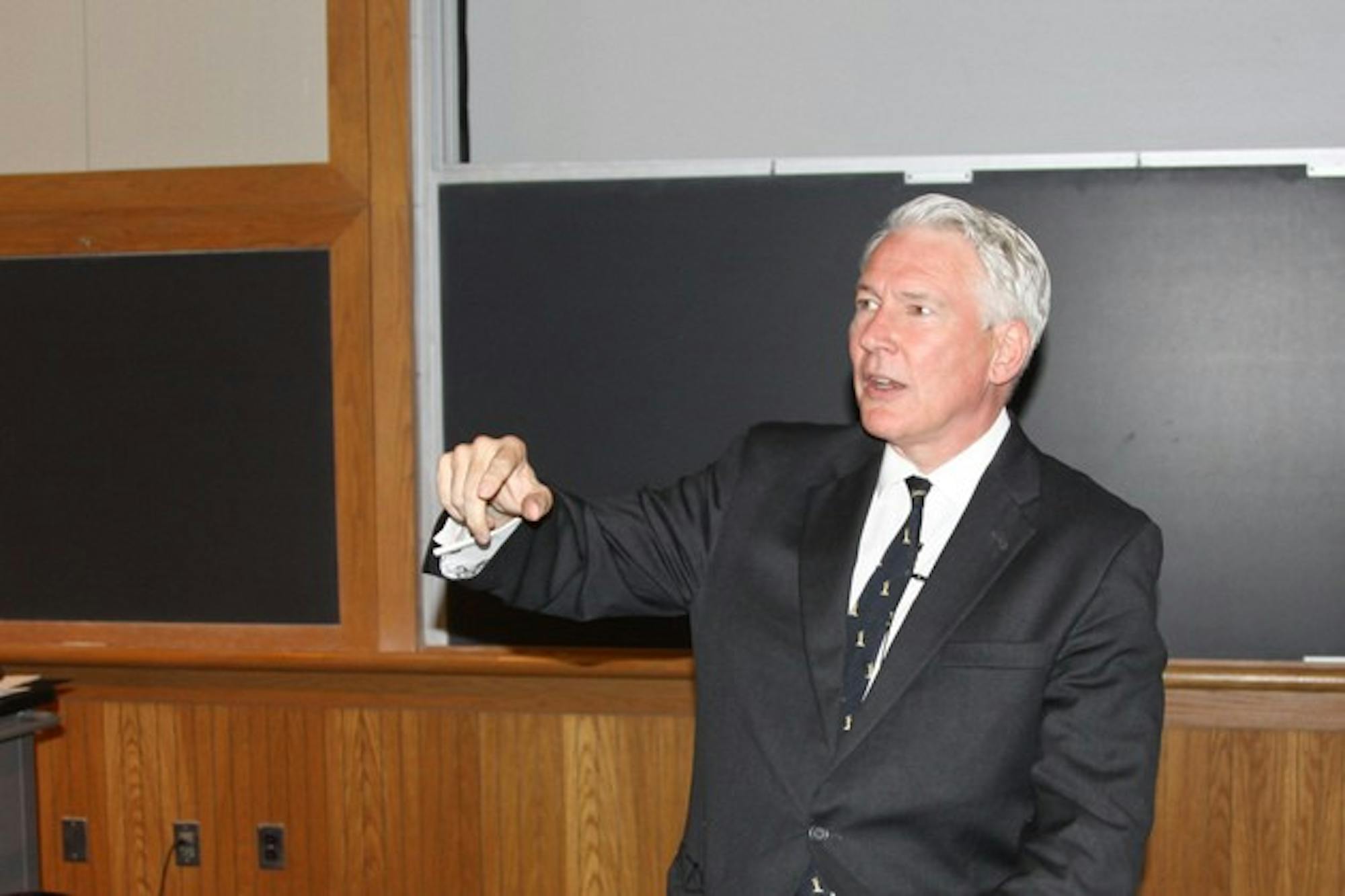In a lecture Wednesday in the Rockefeller Center, "Can the U.S. Have a War on Terror? Can We Win It?" Bobbitt argued that terrorism has evolved to reflect the new constitutional order, becoming more "war-like" as it targets powerful states.
In contrast to Bobbitt, some Americans believe the United States is currently not at war because a war on terrorism cannot be fought, he said.
These people tend to think that "the concept of war does not apply to an adversary that has no territory to defend, no capital to seize, no army to surround," he said.
Those who argue that the conflict with terrorists does not constitute war contrast the war on terrorism with previous wars the United States has engaged in, Bobbitt said. They often cite the statistic that the fatalities in the war on terror have been minimal, he added. "The number of people who have been killed by terrorists since 1960 is smaller than the number that have died from peanut allergies," Bobbitt said.
Bobbitt argued that such reasoning overlooks a crucial development in the changing nature of the state. Bobbitt demonstrated a shift in the United States which has evolved from a nation state to a market state in accordance with the rise of globalization that has changed terrorists' targets and the way the conduct attacks.
Market states, which are guided mainly by economic principles, seek to maximize wealth and financial opportunities worldwide, he said.
"We can't hide from either the costs or benefits of the market state," Bobbitt said.
Terrorism has evolved to reflect the new constitutional order, according to Bobbitt. As leading countries become increasingly "evolved, decentralized and globalized," terrorism will develop in a similar vein, he said.
Terrorism has become more "war-like" because terrorists targeting market states are "better financed, outsourced to a variety of different groups, more likely to use weapons of mass destruction and directed against the governments of leading market states," Bobbitt said.
Military and political leaders fighting the war on terror must look beyond al-Qaida, according to Bobbitt.
"We are in fact in a war against time itself," he said. "Time will bring forth new and more devastating terrorist groups long after al-Qaida is defeated."
Although terrorism remains a serious threat to national security, Bobbitt said he has had a "very positive" reaction to the work of President Barack Obama's administration. He particularly commended the appointments of Secretary of State Hillary Clinton and Secretary of Defense Robert Gates.
Moving forward, the leaders of market states must develop new strategic documents and create new international laws, utilizing the International Criminal Court to try accused terrorists, according to Bobbitt.
College students in the evolving world must also strive to become "better educated citizens of the world" and "more resilient human beings," Bobbitt said.




